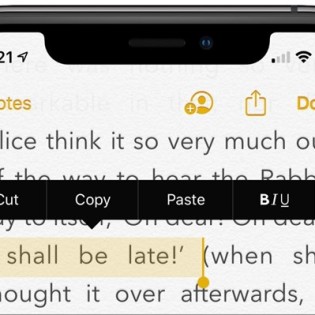10 ways to improve annual reports

Keep ahead of new corporate reporting rules
It’s been a long time coming, but the annual report is about to change. That was made clear two years ago when the Financial Reporting Council (FRC) denounced the current way of doing things as “fragmented and sometimes incoherent”.
Sir Jon Thompson, outgoing FRC chief executive, went further, saying: “We question whether the traditional concept of the annual report remains fit for purpose.”
The FRC even presented for discussion a “radical overhaul” in its statement A Matter of Principles: The Future of Corporate Reporting
This year the Department for Business and Trade announced a review of the non-financial reporting requirements UK companies need to comply with to produce their annual report.
What does it mean in practice? It means you can wait for a slew of rules to be thrust upon you. Or you can anticipate the changes which, basically, add up to common sense. You can get ahead.
You may also find that better reporting will strengthen business operations and bottom-line value. A company that tells its story properly may well be more valuable.
10 ways to improve the annual report
So here’s a checklist of things to do now:
- Kill the jargon. Lose the management-speak, slang and acronyms. Don’t throw in well-worn phrases such as “the new normal” as if they were newly minted. Think of your own.
- Get your characterisation right. Clever phraseology can make complex concepts sound fresh. When a well-known CEO was asked what shape a recession was likely to take, he eschewed the usual V-shaped, U-shaped or L-shaped and suggested it would be bath-shaped. It got him talked about. And, it turned out, he was right.
- Get your narrative right. Though financial material has improved over recent decades, the narrative aspects of corporate reports remain a perplexing mix of cliché, hagiography and misplaced messaging.
- Get executive buy-in to make that change. Inertia arising from ingrained executive assumptions and perceived satisfaction with things as they are, will be the primary obstacle to improvement.
- Shorten sentences and keep it brief. There’s little that can’t be expressed concisely. To be precise, we recommend an opening sentence be no more than 15 words and that the average length of sentences should be 20 words.
- Improve text presentation, design and imagery. Column widths, ill-chosen fonts and white type on colour hinder reading. The annual report is one of your most important content outputs and one where huge efforts across the company will have been made. Don’t spoil it with ill-chosen stock imagery. Shoot your own – especially the portraits of your board – and hire a good illustrator.
- Embrace that digital thing. Central to the FRC thesis is that material information is presented in an accessible way. It should be, to quote the FRC, “digital by default”. That means intelligent infographics, data visualisation, video and animation.
- Think of the wider world. It also means going beyond the annual report and treating it as any thought leadership report would be treated and promoted on social media through carousels, video and graphics.
- Shift your thinking. Carry out an editorial audit. This should help ensure consistency, clarity in grammar and syntax and sober-stylish page designs and graphics.
- Get publishing experts involved. Just as being able to count doesn’t make you an accountant, content creators need more than an ability to spell to write and edit. Having a camera-phone does not make you a photographer. While expert accountants and actuaries attend to the financials, almost anyone can turn their hand to the writing. They do. And it shows.
Highbrook was founded to help companies, institutions, non-profits and NGOs publish content which is informative, accurate and accessible. Our editorial, strategy and design practitioners are well-qualified, experienced, professionals. As well as content creation, consulting and editorial-audit services are available. We’ve helped WPP, QBE and many others.
Want to know more about how we could help? Contact us at info@hbrk.co.uk





